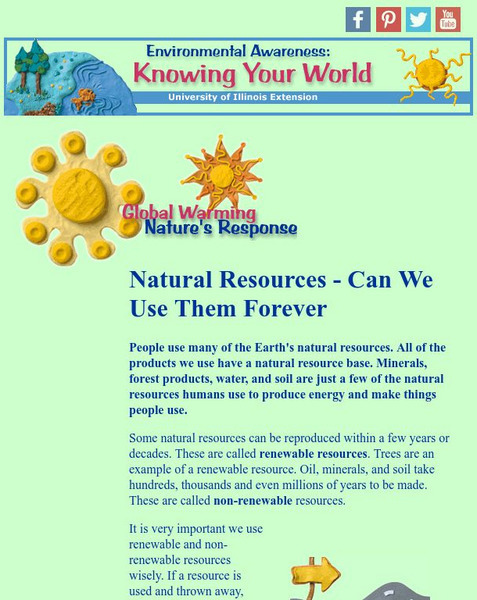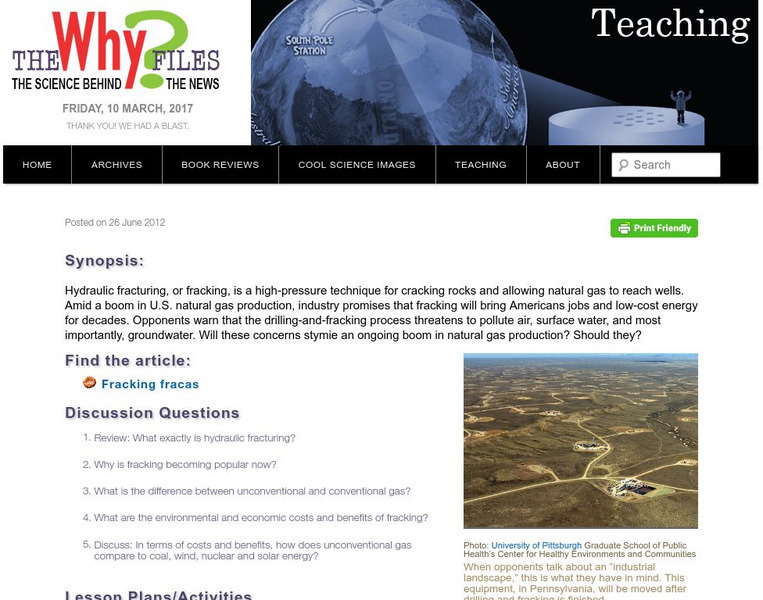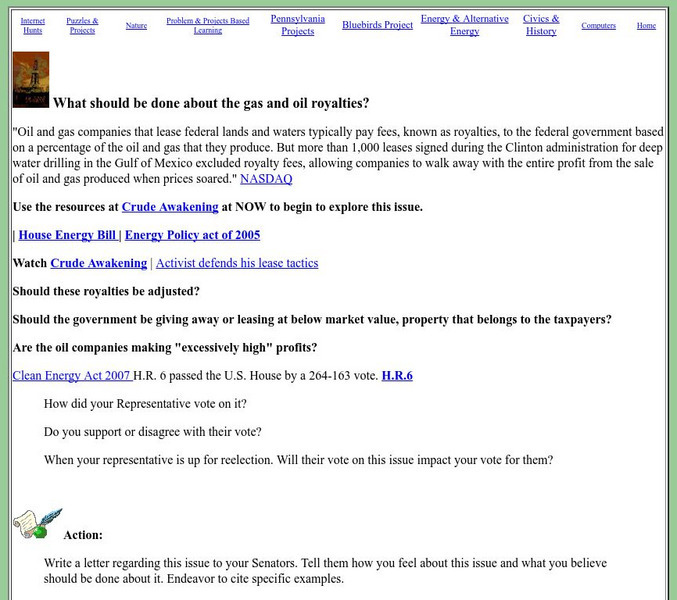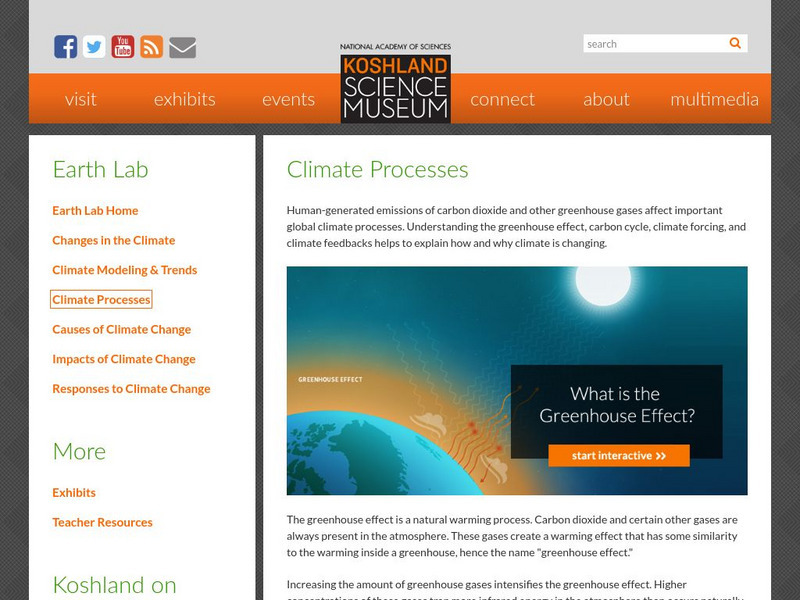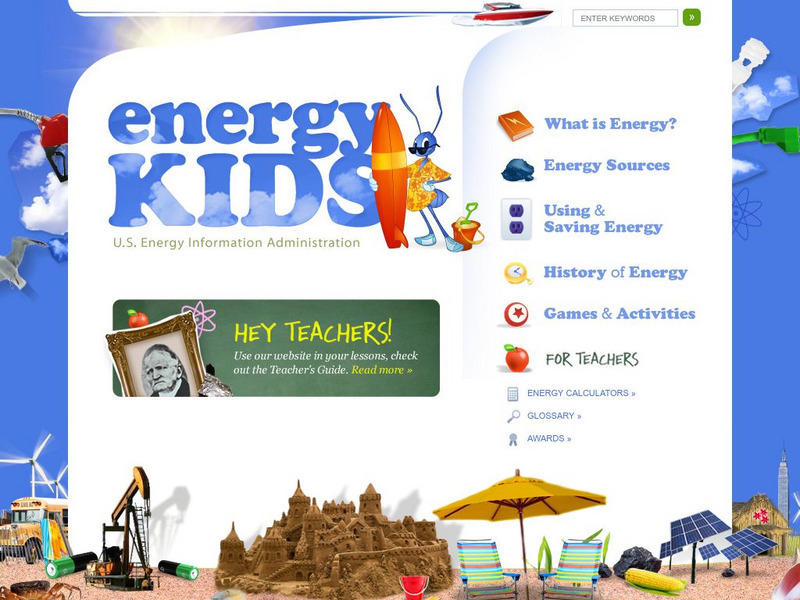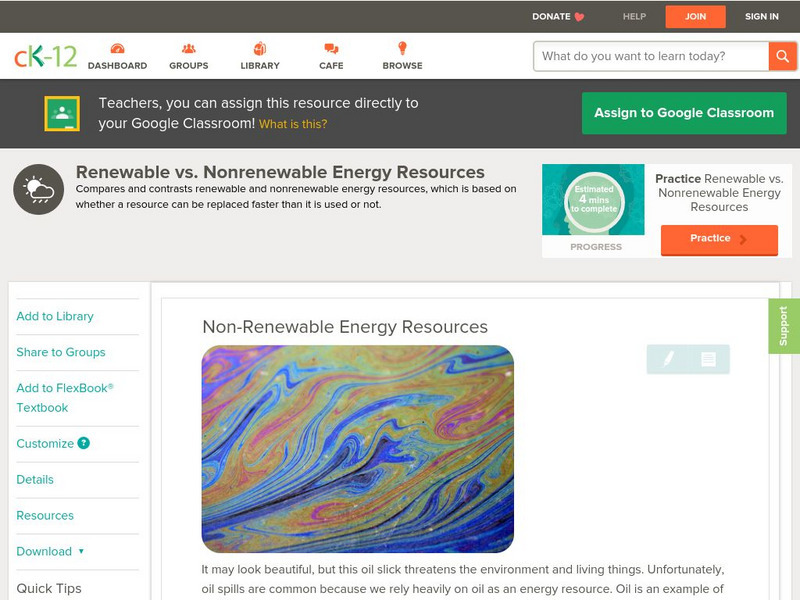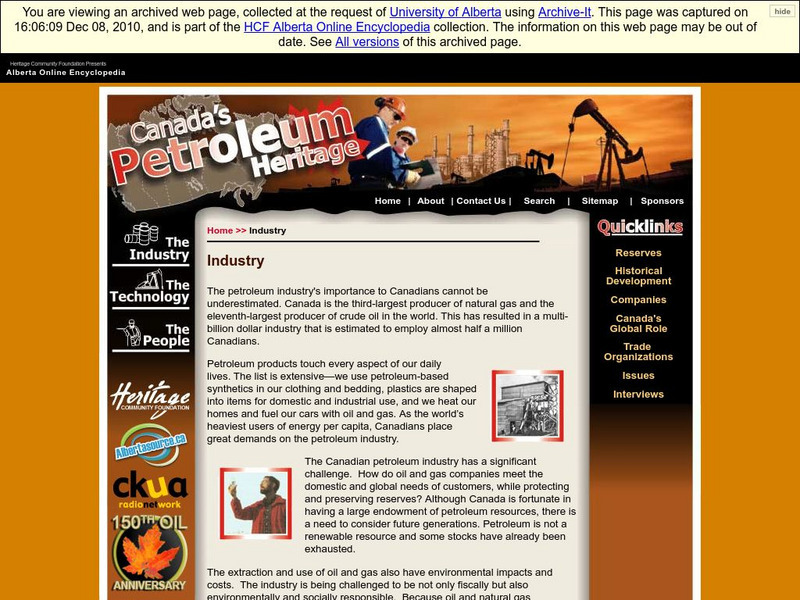Nature Conservancy
The Nature Conservancy: Renewable Energy
In this lesson, students explore solar and wind power-two important renewable energy sources.
University of Illinois
University of Illinois Extension: Schools Online: Knowing Your World: Natural Resources
This brief article emphasizing the importance of renewable and non-renewable resources urges readers to appreciate and not waste the earth's natural resources. Following the article, there is an activity, a "Mineral Search," through...
US Energy Information Administration
U.s. Energy Information Administration: Azerbaijan
This interesting site talks about the natural resources in Azerbaijan. Read about this country's oil and natural gas reserves and the importance of these to the economy and politics.
Geographic
Russia Natural Resource
Russia is rich in natural resources which include oil, natural gas, iron ore, manganese, chromium, nickel, platinum, titanium, copper, tin, lead, tungsten, diamonds, phosphates, gold, and timber.
American Museum of Natural History
American Museum of Natural History: Ology: Rising Co2! What Can We Do?
With this resource, students learn how much fossil fuel emissions have increased since 1600 by exploring a graph showing carbon dioxide in our atmosphere. Then answer questions and read facts about climate change over the centuries....
US Energy Information Administration
U.s. Eia Energy Kids: Nonrenewable Energy Sources
This resource provides information about nonrenewable energy sources. There is specific information about each of these energy sources, and lots of maps, charts, tables, and graphs to further the understanding.
University of Wisconsin
The Why Files: Hydraulic Fracking
Find out the pros and cons of hydraulic fracking while producing natural gas.
American Geosciences Institute
American Geosciences Institute: Earth Science Week: Properties of Fluids in Reservoirs
This investigation will help students understand the physical relationships between natural gas, oil, and water in a reservoir and how these relationships can affect recovery.
Other
Wisconsin K 12 Energy Education Program (Keep)
The mission of KEEP is to improve energy education in Wisconsin's schools. It provides teachers access to resources, activities and web support for many hands-on lessons for all grade levels.
US Department of Labor
Bureau of Labor Statistics: Oil and Gas Extraction
Complete overview of the Petroleum Industry, including nature of the industry, working conditions, employment prospects, wages, and outlook. Brief descriptions of several careers in the industry are included, with links to those expanded...
TeachEngineering
Teach Engineering: Rolling Blackouts & Environmental Impact
The goal is for the students to understand the environmental design considerations required when generating electricity. The electric power that we use every day at home and work is generated by a variety of power plants. Power plants...
Cynthia J. O'Hora
Mrs. O's House: What Should Be Done About Oil and Gas Royalties?
Engage the classroom in studying about oil and gas royalties paid to the government, in some cases not paid, with resources drawn from leased land paid for by the government. Take research results and contact state and federal government...
US Geological Survey
Lake Pontchartrain Basin Foundation: Natural Resources of the Lake Pontchartrain
A collection of lessons focusing on the importance and uses of natural resources. Website specifically focuses on the resources found on Lake Pontchartrain Basin.
US Geological Survey
Usgs: Energy Resources Program
Find the latest research and publications on the subject of energy, in particular: oil, gas and coal resources.
The Franklin Institute
As the Drill Bit Turns
Is the world running out of gas? Teach your students how their lives impact the depletion of non-renewable resources, specifically oil, and how the depletion of those resources will effect the future.
Other
The Greenhouse Effect: Natural and Amplified Warming
This concise resource presents a thorough drawing which simplifies the explanation of the greenhouse effect into six easy to understand steps.
US Energy Information Administration
U.s. Eia Energy Kids
This extensive resource provides information on renewable energy, nonrenewable energy and energy conservation.
CK-12 Foundation
Ck 12: Earth Science: Non Renewable Energy Resources
[Free Registration/Login may be required to access all resource tools.] What nonrenewable energy resources and fossil fuels are and how they form, and the drawbacks of using nonrenewable energy resources.
Other
Abc Da Energia
ABC Da Energia describes the many ways that energy can be obtained and conserved. It explains different sources of energy, how each works, and how energy can be saved in our daily lives. Interactive energy-saving activities and games...
Alberta Online Encyclopedia
Alberta Online Encyclopedia: Canada's Petroleum Heritage
Petroleum! Where does it come from? Follow its importance, technology, rank in the world, products, and more.. in this colorful, informative web site.
Scholastic
Scholastic: Study Jams! Science: Energy, Light and Sound: Fossil Fuels
A slideshow and a short quiz on the types of fossil fuels we use and the impact this has on the environment.
Texas State Historical Association
Texas State Historical Association: Minerals in Texas [Pdf]
An activity guide where students refer to the Texas Almanac, which is free to download, for information needed to complete assigned tasks. In this instructional activity, they examine the history of oil and oil and gas production In...
US Department of Energy
Doe: Fossil Energy: Education Start Page
Overview of the fossil energy industry (oil, gas, coal) with detailed descriptions of the processes and the work of the people employed in the industry.

